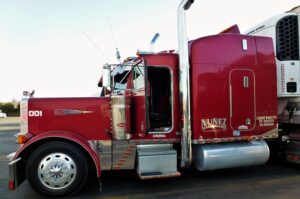Register Car California: VIN Verification & Document Guide
Registering a car in California involves understanding specific requirements and gathering essential documents. This comprehensive guide walks you through the process, from confirming your Vehicle Ide…….

Registering a car in California involves understanding specific requirements and gathering essential documents. This comprehensive guide walks you through the process, from confirming your Vehicle Identification Number (VIN) through verification—a crucial step—to choosing the right registration type and paying associated fees. By following these steps, you’ll ensure a smooth registration experience for your vehicle in the Golden State. Key terms include VIN verification, making the process efficient and straightforward.
- Understand California Vehicle Registration Requirements
- Gather Necessary Documents for Car Registration
- Perform VIN Verification: Steps and Importance
- Choose an Appropriate Registration Type in California
- Submit Application and Pay Fees for Car Registration
Understand California Vehicle Registration Requirements

Before registering your vehicle in California, it’s crucial to understand the state’s specific requirements. One key aspect is ensuring accurate and up-to-date information, including a valid Vehicle Identification Number (VIN) verification. This process confirms the vehicle’s make, model, year, and other critical details. In California, you’ll need to present a current emissions inspection report as part of your registration application.
Additionally, all vehicles must meet certain safety standards, emission regulations, and have current insurance coverage. A mobile VIN verifier or mobile vin verification service can streamline this process by providing on-site vehicle inspections, ensuring that every detail is accurate before you proceed with registration. This method saves time and avoids potential issues later on, making it a convenient option for California residents looking to register their cars quickly and efficiently.
Gather Necessary Documents for Car Registration

Before you start the registration process, make sure to gather all the essential documents. This includes your vehicle’s registration certificate from the previous state, a valid driver’s license, proof of insurance, and the Title document, which can be obtained through a VIN verification process. The Vehicle Identification Number (VIN) is unique to each car and serves as a crucial identifier during the inspection and registration stages.
You can facilitate this VIN verification process with the help of a mobile vin verifier, making it convenient for you to complete your vehicle’s registration in California efficiently. Ensure that all documents are up-to-date and accurate to avoid any delays or complications during the car registration procedure.
Perform VIN Verification: Steps and Importance

Before registering your car in California, it’s crucial to perform a Vehicle Identification Number (VIN) verification. This step ensures that the vehicle is as described and has no outstanding issues. Start by obtaining the VIN from the vehicle’s registration documents or the frame of the car itself. Then, follow these simple steps:
1. Visit an authorized VIN inspection station or use a mobile vin inspection service to conduct the check. Many services offer this on-the-go, allowing you convenience and saving time.
2. Provide the VIN to the inspector who will cross-reference it with state records and databases. They’ll verify the vehicle’s history, including accident reports, outstanding loans, and any reported thefts.
3. The inspector will provide a report detailing the findings. If there are no issues, you can proceed with registration. If discrepancies are found, address them before attempting to register your vehicle. This process is vital for ensuring a smooth registration experience and confirming the car’s legitimacy.
Choose an Appropriate Registration Type in California

When registering your car in California, understanding the different registration types is key. The state offers various options depending on your vehicle’s age and intended use. One important consideration is whether your car is new or used, as this will determine the type of registration required. For instance, newly purchased vehicles often come with temporary tags during the initial registration process, which must be replaced with official plates after a specific period.
Additionally, California allows for specialized registration types like those for classic cars or low-emission vehicles. Each category has unique requirements, including documentation and potential fees. A crucial aspect of this process involves VIN (Vehicle Identification Number) verification, ensuring the vehicle’s authenticity and history. You can facilitate this through a mobile VIN inspection or verifier, providing convenience and peace of mind during registration.
Submit Application and Pay Fees for Car Registration

After ensuring your vehicle meets all requirements for registration, it’s time to submit your application and fees. You’ll need to complete Form DV304 (Vehicle Registration Application), available online or from a California Department of Motor Vehicles (DMV) office. This form requires detailed information about your vehicle, including its make, model, year, and unique Vehicle Identification Number (VIN). Accurate VIN verification is crucial for a successful registration process.
Once your application is filled out, you’ll need to pay the appropriate registration fees. These can vary based on factors like the type of vehicle and whether it’s new or used. After submitting your application and paying the fees, the DMV will process your request, and once approved, they’ll issue a registration certificate and license plate for your car. For convenience, many Californians opt for mobile VIN verification and inspection services to streamline this process from the comfort of their homes.
Registering a car in California is a straightforward process that requires understanding key requirements, gathering essential documents, and completing crucial steps like VIN verification. By following these steps, from choosing the right registration type to paying fees, you can ensure your vehicle is legally registered and ready to hit the road. Remember, proper registration not only complies with state laws but also protects your investment and ensures safe driving.







